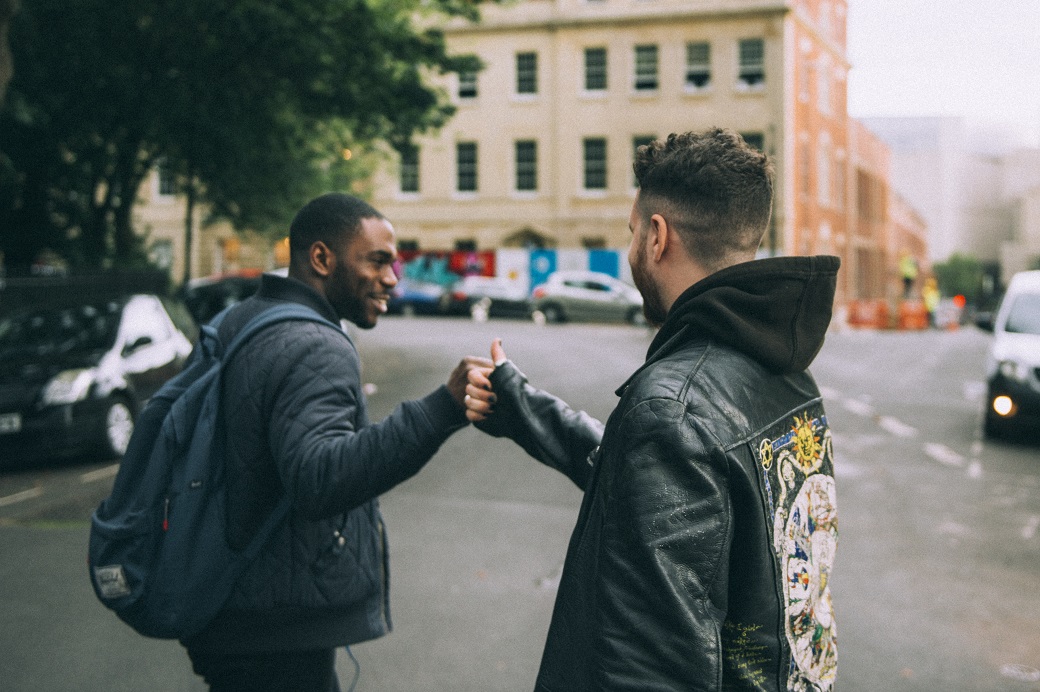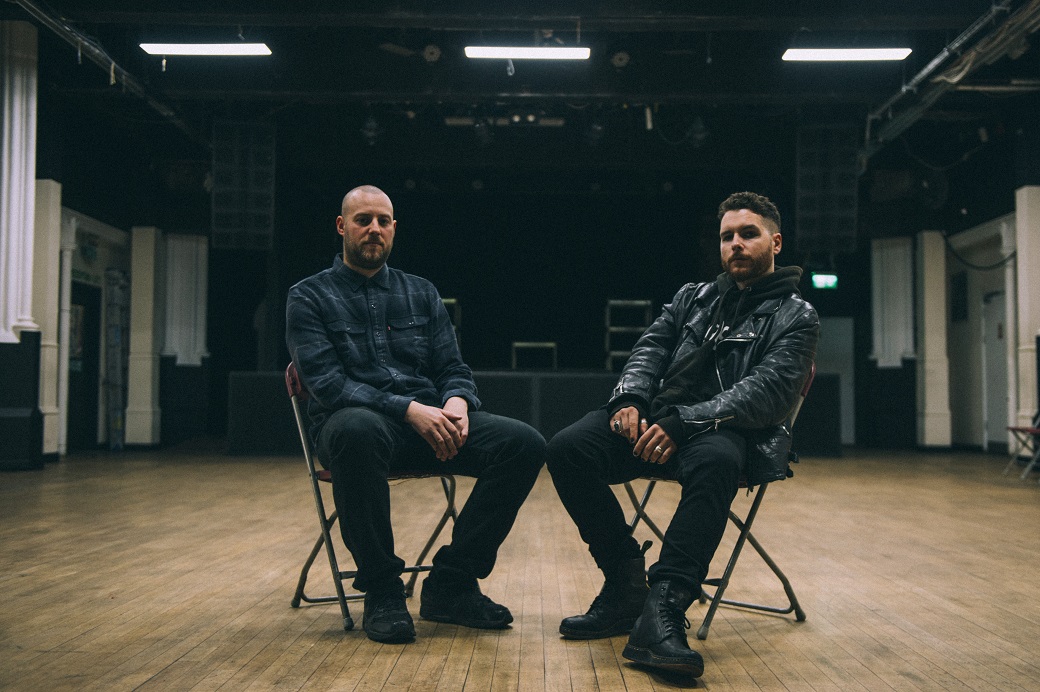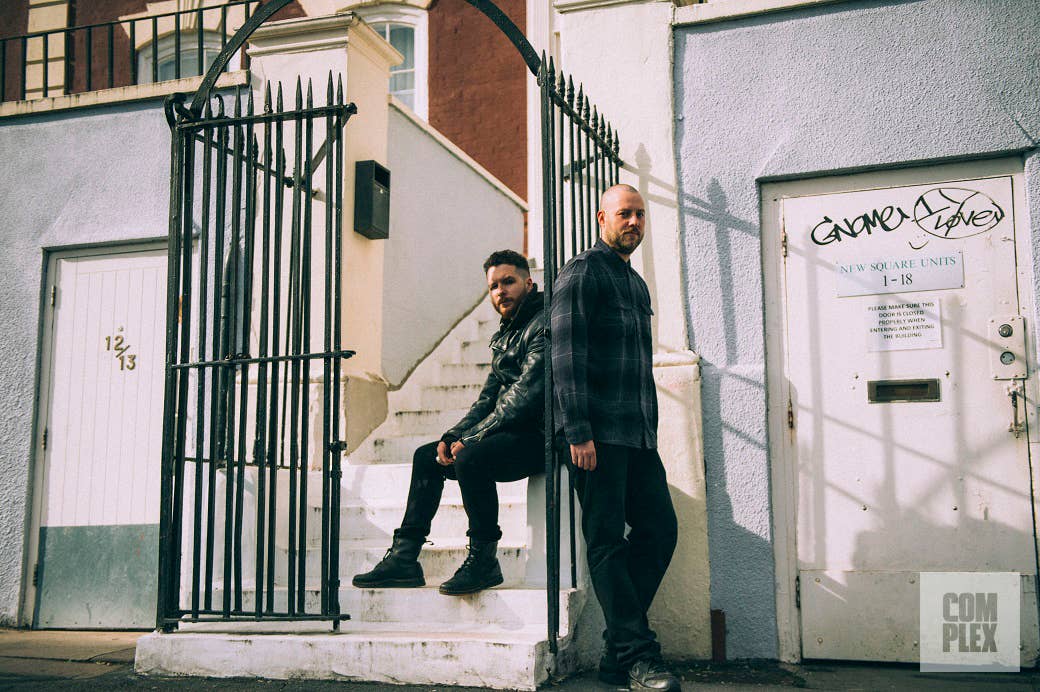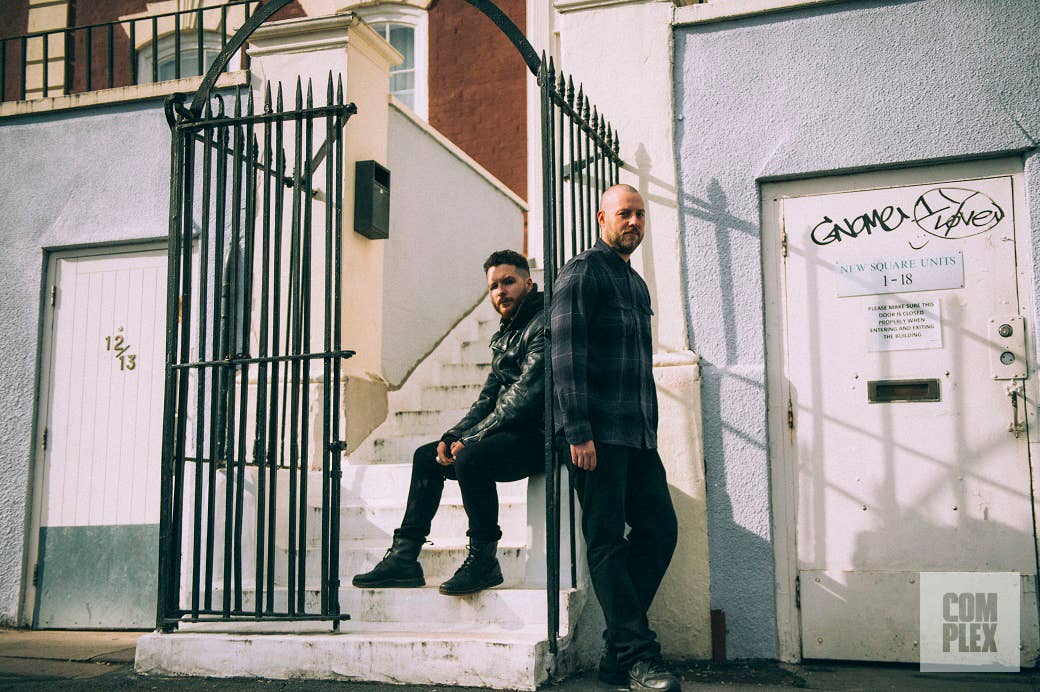
Welcome to My Block—a new series, part of the Levi’s® Music Project, where we take you to the block, estate, ends (or semi-detached—we don’t discriminate) of some of the UK’s brightest music talents. Here, we’re given first-hand accounts of their musical backgrounds and how their area and their community helped shape them into the musicians they are today. For our third trip, we head over to Bristol to meet production duo Kahn & Neek. Get to know.
Over the past few years, Joseph “Kahn” McGann and Sam “Neek” Barrett have found success exploring the intersection between grime, dubstep and beyond. One of their earliest singles, “Percy”, was an instant classic that married classic grime synths with a spacious, industrial dub edge. They’ve released heavy hitting singles and EPs through esteemed labels like Mala’s Deep Medi Musik, fellow Bristolian Peverelist’s Punch Drunk and of course their own Bandulu Records. Besides their work as Kahn & Neek, they also DJ and produce as Gorgon Sound and involve themselves in a number of collectives and projects, including the more experimental Young Echo collective. Alongside Boofy and Hi5Ghost they also comprise Bandulu Gang and run Bandulu Records, the former providing an outlet for their passion for dubplates and soundsystem culture—an interest they were able to put to good use when they brought Bandulu to Red Bull Culture Clash in Bristol against Pinch, Jah Tubby and T.Williams in 2014.
Kahn & Neek took us around their block, the centre of Bristol, to see the local record shops they spend their free time in, the studios they’ve worked in and some of the venues that have been so crucial in shaping their musical paths. At the heart of our conversations, and the city, is a strong sense of open-mindedness and inclusiveness. The pair are quick to note the pace of life in the city, noticeably slower than somewhere like London and more conducive to cultivating long-term scenes and communities. As we explored the various settings they grew up in, we discussed the Bristol they knew as teenagers and how it compared to the city as it stands today—from soundsystem culture to DJing in converted police cells.
“It wasn’t as crucial to have youth centres and specific places to go because it’s all around you here.”
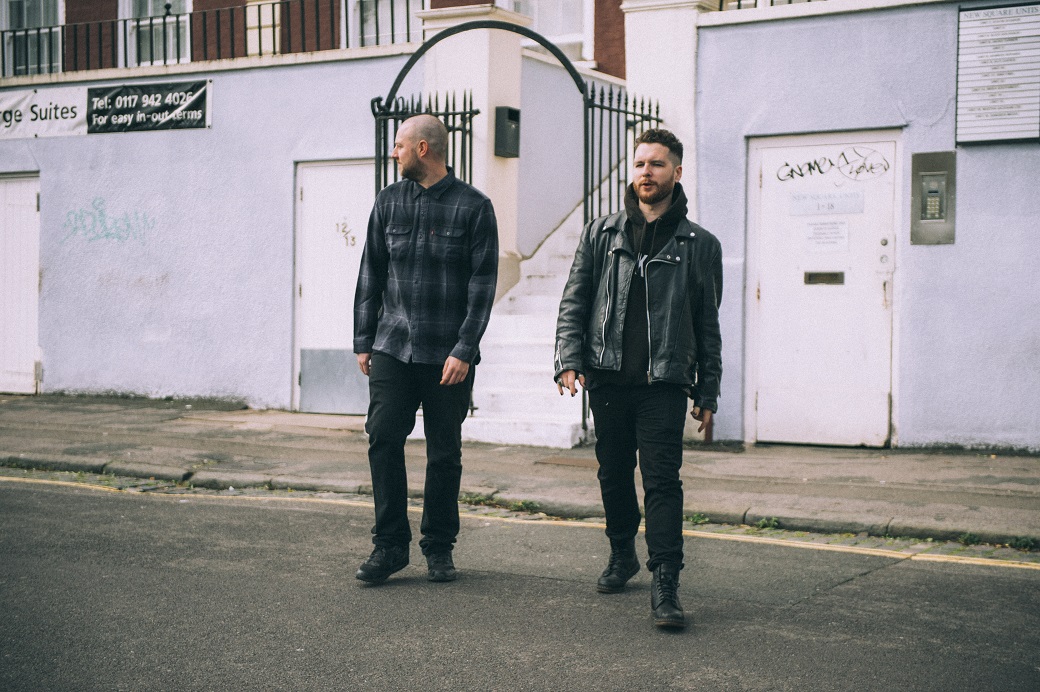
So, how did you guys meet?
Neek: Joe was the year below me. When I was in the first year at college, I think he was in year 11 at school. We knew each other because we had mutual mates. A couple of years later, we started DJing at the same sorts of nights. We always used to go to these nights at The Black Swan and there’d be quite a mix of genres. You’d have an element of dubstep and grime but there’d be breakcore and jungle and stuff like that as well. Joe was into breakcore and jungle so we’d see each other at those nights. The first time we ever played together was at Cosies, which was actually the first night I ever put on. We had open decks at the end. The guy MCing was Joe’s mate who now does the graphics for Bandulu. He was hosting the night and he told me about his mate Joe who was coming. We knew each other a little bit already and then Joe jumped on the decks at the end of the night and that was the first time we played on the same bill together. From there, we just played on and off a lot of the same places together.
Kahn: I think it was when we started making tunes together, really.
Neek: Yeah, two years after that we started messing about making dubstep. I think 2008, it was. I was at university in Brighton so I’d come back in the summer and we’d just hang out and that’s when we started making a couple of tunes together. We started DJing a lot more together. It wasn’t even supposed to be anything intentional at the start. We were just making the odd tune together to have some dubplates when we were DJing back-to-back because we had similar tastes. We always used to ram so many people on the line-up so we’d have to try to fit everyone in. That’s kind of informed what we do musically as well, liking similar stuff but also having similar ideas.
Kahn, you were producing yourself a bit before you started working together, whereas you (Neek) were DJing more. Was it through Kahn that you started producing?
Neek: Yeah, I was messing about at university with my friends. I had a lot of friends that were doing digital music so I’d seen Logic and had an idea of what it was but I only really got to grips with it once I started working with Joe. Working with Joe definitely made me take it more seriously because before I was just obsessed with collecting records and mixing. I just wanted to concentrate on that and get good at that first. I never thought to get into the production side of things on my own.
Kahn: Having Sam [Neek] there in production brings a different kind of energy to things. It’s important to have different ideas floating around. I do spent a lot of time sat on my own in front of my computer. As you say, it wasn’t really planned that we’d be this duo.
On that note, why are you guys called Kahn and Neek?
Kahn: No idea, really. I needed a DJ name. I came up with it when I was about 15/16, I think. I’m just glad it’s kind of neutral and doesn’t relate to any genre or anything.
Neek: I just called myself Neek because in grime being a neek is funny. If I call myself a diss, then what can anyone say to me? I was about 16/17 when I started buying grime records, and I didn’t ever expect to carry on doing it. I called myself that as a joke and then everyone started calling me Neek as a nickname. Older people didn’t get it though. Also, it makes grime MCs uncomfortable when they’ve got to shout out Neek [laughs].
Kahn: I just remember the promoter calling me up saying, “I’m doing the flyer right now. You need to come up with a name.” I used to have a little umlaut on it because I was 16 and thought it was cool. Then I had a German come up to me and tell me it meant small boat in German so I had to take the umlaut off.
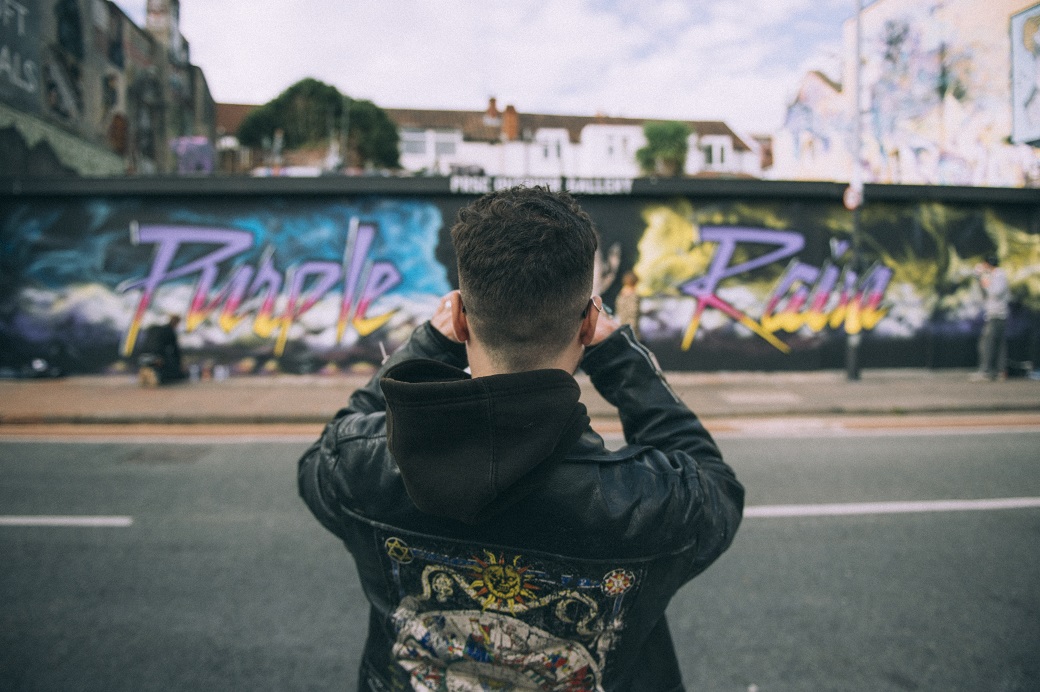
You’ve got Bandulu Records and all these different avenues like Young Echo for releasing music. If you wanted to see what’s popping in Bristol, what the 18/19 year olds are playing, where would you go?
Kahn: Probably places like Cosies and the smaller clubs. Bristol’s kind of split because you’ve got Motion which is where I guess that age group would probably go there more because that’s where a lot of massive student nights are. Some younger DJs do get to play there as residents at some of the nights, but it’s not necessarily a grassroots thing. So that’s where a lot of young people go. I guess The Crofters as well, probably. Occasionally The Exchange as well, but that’s more for bands than DJs.
Neek: And lots of pop-up places as well like the Police Cells and Take Five which is a cafe during the day but it’s got a basement. There’s a lot of good events go on there, actually. It’s stop and start though. Some people will use that venue just for certain events but they might have a regular party somewhere else.
Kahn: There’s a lot of stuff at The Love Inn and a few other bars. It changes quite a bit.
Neek: When we were 17/18, all the places we went to were really small like 150 capacity, even the established ones. That’s always been the vibe.
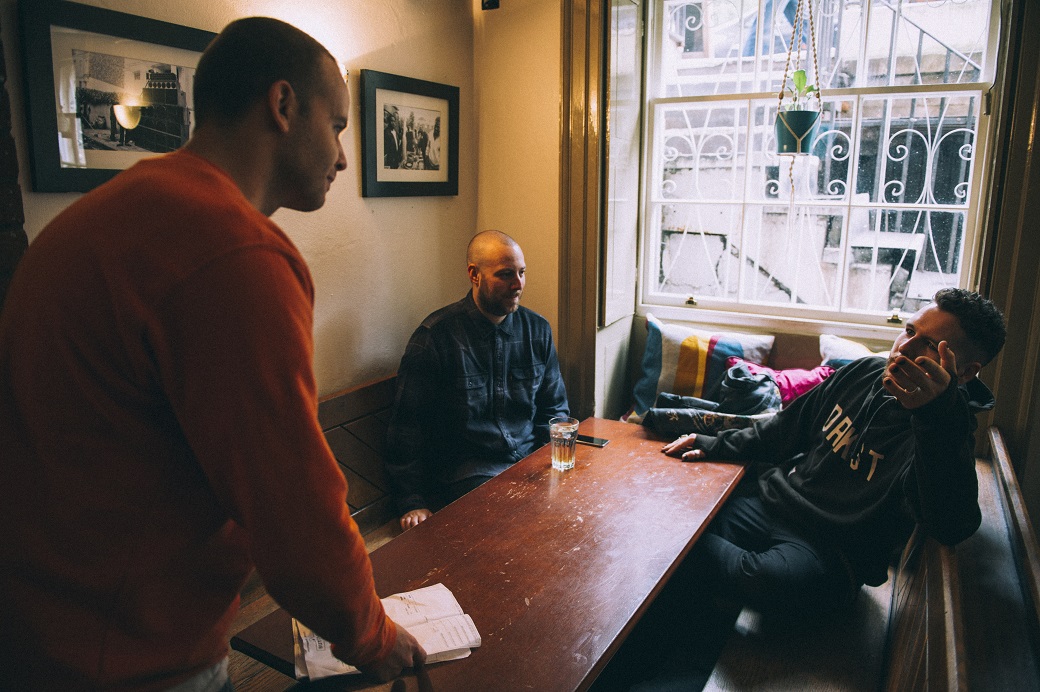
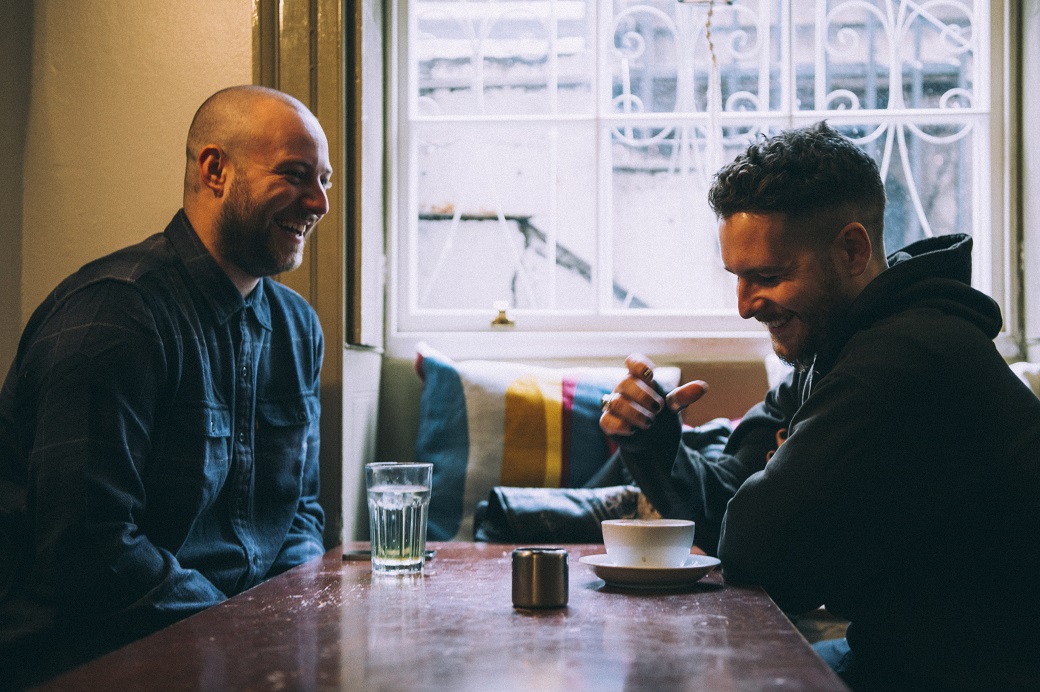
What’s it like locally? Are there lots of producers coming up we should know about?
Kahn: Loads! Every year, especially when the students come in, there’s always new nights popping up. There’s always kids that know about Bristol music coming into the fold and contributing and putting their own things on. That’s been happening since Pinch, Peverelist and all those guys were students. It’s been going on for years and years. For instance, Frankie here at Cosies came over to Bristol maybe four years ago. That’s the good thing; you can turn up in Bristol and it’s pretty welcoming in general. It’s not shut off. That’s the Bristol attitude. We like to see each other doing well, you know? We do feel a strong sense of community and it is a small city. It’s important to have our own identity and I think that comes through by us all supporting each other.
Growing up listening to trip-hop, drum & bass, dubstep and some of the other stuff coming out of Bristol, I kept hearing about “the Bristol sound”. Is that something you’ve noticed or is it more like a shadow hanging over everything?
Kahn: A lot of it is press terms. That’s just the truth. Trip-hop, for instance, isn’t anything. It’s like the New Romantics. I was watching a Boy George documentary yesterday. They didn’t call themselves New Romantics. That was the press. They see a scene and give it a title. It’s like dubstep. Dubstep’s the same. I think Chef or Hatcha actually coined the term but people who are actually involved in something, doing it, they’re not really concerned about what it’s called. They’re just doing it. With the Bristol sound, you hear that all the time. There’s definitely reasons why people do things they do and the music does come out in a certain way here in terms of like socio-political stuff, the fact you’ve got St. Paul’s as one of the earliest Caribbean communities in the UK with white middle class people right next to each other. Over the years there’s been more and more mixing. Where we’ve just been, around Stokes Croft, that’s a borderline between the richer properties up the hill, predominantly white areas, mixing with mostly Caribbean and immigrant communities. That’s been going on since before our parents were growing up even. It’s not like London where it’s so spread out—parts of East London are like a different city to parts of South or whatever. So people are meeting and all these different things are clashing and changing and evolving all the time. Music and art and all that, soundsystems and so on, they’re just second nature to us. Kids like us who’ve actually grown up in Bristol, especially if you’re interested in art. It’s just natural. It’s hard for us to know what this Bristol sound is. Living in Bristol, it’s difficult for us to decipher what it is.
Neek: We forget that we’re lucky to be from this place. The musical heritage here… there’s so much that’s already there. You feel like you can just become part of it very easily and it doesn’t feel forced. You don’t really notice the whole thing. I don’t notice our music sounding different to other people. It obviously is because it’s a separate thing but I don’t know if it necessarily sounds that different from people in different parts of country. Maybe because it’s rainy, a bit melancholy here. [laughs]
Kahn: There’s definitely some sort of musical darkness, but at the same time Bristol people aren’t necessarily depressing people, it’s just a kind of moodiness to it. I don’t know where that comes from, it’s just…
Neek: Maybe it’s because everybody’s quite happy here, your moody side comes out in the music.
Kahn: It’s really bizarre. I’m sure people have tried to figure it out.
“That’s the Bristol attitude: We like to see each other doing well.”
Hearing that phrase, I just assumed they were just referring to that dubby element in dubstep, drum & bass, trip-hop, etc.
Kahn: I think that’s definitely crucial. I noticed that the most when we went to America for the first time. When we were first touring around the States, coming across kids who have never really experienced a proper soundsystem before. Unless they knew Jamaican people or unless they’ve grown up in a Caribbean-influenced community, they didn’t really have that culture of soundystems. Even in the clubs, the systems were not about sub or any of these things that you take for granted.
That’s when I realised we do just have all this cultural stuff around us. That’s of course massively to do with the Caribbean community. It’s evolved over time and I think that, certainly for the ‘80s and ‘90s, the punk and reggae communities were a massive lasting influence on the way things are now. It’s just about openness to things. That’s what it’s really about. People who are really into reggae are really open to other things. If you go just 10 minutes down the road it’s not like that. We were in Bath the other day and it’s a completely different place—even though Haile Selassie actually lived there. It’s a completely different temperament. There’s just something about these clashes of cultures.
Did you guys ever build soundsystems?
Neek: Our mate Beavis, a guy I know from college, he used to build them and we started a club night together in Cosies. He was building soundsystems when he was about 15/16, building boxes with his granddad and stuff. He’s still got some of those boxes now. Over the years, me and Joe put in bits of money and we were all kind of DJing as a soundsystem for a while. We’ve been parts of different ones and had experience of them. We haven’t necessarily built one ourselves but we were part of soundsystem crews. We may not have necessarily built the boxes and the rigs but we definitely have had that essence of a soundsystem crew. Whether it’s with Young Echo or whether it’s with our Bandulu label and how we roll all together. We’re like a big crew. We can play the music the whole night how they would at a reggae dance. It’s the same vibe as a reggae dance but it’s different genres. We definitely took the template from that.
Kahn: You can say it translates into the vinyl thing through dubplates, through that appreciation and wanting to carry on that tradition of cutting dubs. Again, I think in Bristol there’s a lot of people who just play vinyl here. And cut dubs regularly. It’s not even unusual. You get people wondering why you bother doing that but it’s just normal to us. I think that’s what’s a part of the soundsystem thing, the appreciation and understanding of it. It’s not kitschy it’s just normal. Henry, who does it, is just down the road. Even our mate Theo is going to go down there later. I guess we’re lucky to have that on our doorstep.
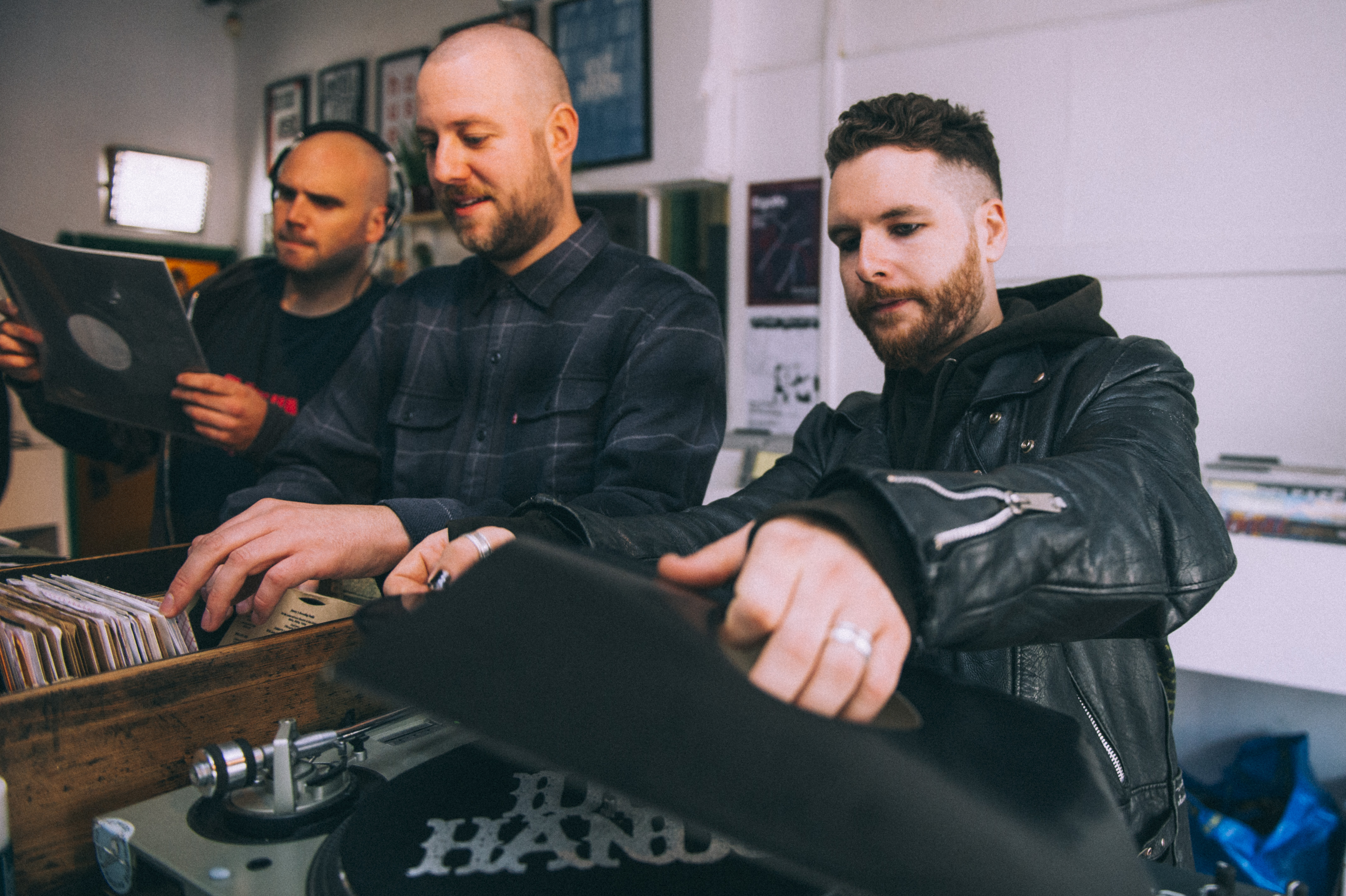
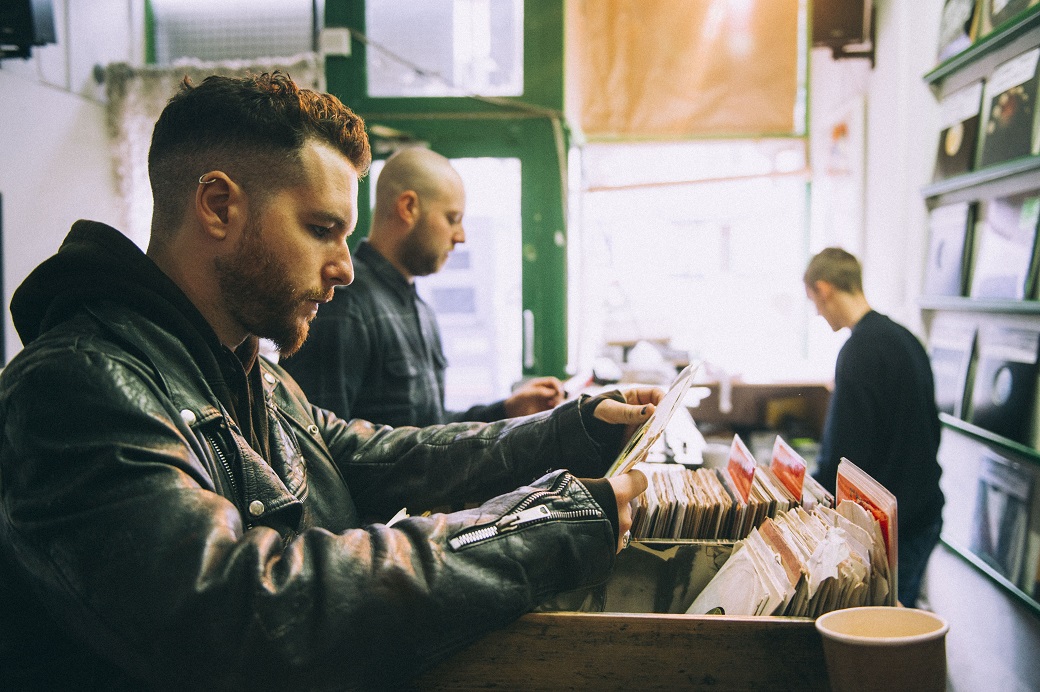
We’ve talked about soundsystems and cutting dubs, is there much of a clashing culture here in Bristol?
Neek: I don’t know. You’ve got Teachings In Dub and Bristol Dub Club. They’re like the two main ones. Teachings is at Trinity and Dub Club at the Black Swan. They’re the main big soundsystem nights where they get big reggae soundsystems to come. There’s always a little bit of a clash at those but Bristol-wise it’s only occasional. Not in a serious way. It’s mostly playful. We’ve played with Dubkasm quite a few times, playing as Gorgon Sound, and we’ll always get a couple of dubs cut which are specific to each other. It’ll either be a vocal special or we’ll remix their tune or something. That’s in a playful way but it pushes you on.
Kahn: The Red Bull Culture Clash is probably the most “clash-y” thing we’ve done in Bristol, really. Us playing against Pinch and all the guys that influenced us was great fun.
Neek:[laughs] Just me and Joe against all of Bristol dubstep!
“Because there was already an established culture for it, you could just step into it as a kid.”
Did you get dubs cut up specially for the Red Bull clash?
Kahn: We had some mad dubs. We had some dubs from Jamaica as well so we had Bounty Killer, Buju Banton, Lone Ranger… The thing with clashing and dubs—and specials in particular—is it’s such a full-time thing. As we’ve gone out more and more we realised that if you go and do that, it’s a proper full-time thing. As much as I love specials, you’ve got to fully invest in doing that stuff.
Neek: It’s got to be your life. I respect people that do it properly and that is their life and everything about them. I wouldn’t want to do it half-hearted because it’s taking away from what they’re doing. We’ve got specials and we get specials off people but that’s just to spice up the set, really. It’s nice to have specials but I wouldn’t want to be playing two hours of specials anyway. It only works in certain contexts. It only works if you’re going to clash people. For example, as Joe said, we got a lot of Jamaican specials, we got a lot of grime specials, all specifically for this Red Bull Culture Clash, and they worked in the context. To be honest, we had a lot that me and Joe were so gassed to have and some of the people at the clash didn’t even know who was on the tune.
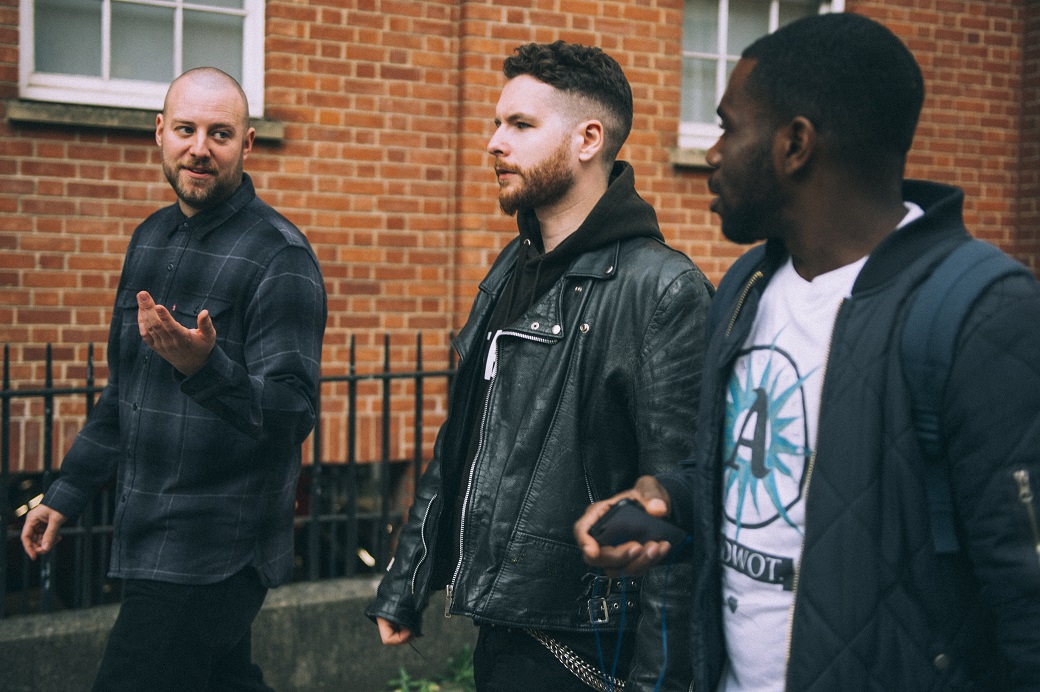
If kids wanted to learn music or practice or have that social element that youth clubs provide, is there anywhere they could go in Bristol?
Kahn: There must be, but to be honest, it’s been such a long time, I’m not sure anymore. I actually learned to DJ in [famed local record shop] Idle Hands. There was a guy there used to give lessons. There are definitely things like DJ workshops in Bristol. They seem to move about a lot. There’s probably different youth centres.
So where did you learn, Neek?
Neek: I learned in my friend’s garage. When I was in year 11 a schoolfriend of mine bought decks for his birthday. We just spent the whole summer learning then. We all learnt more off each other.
Kahn: Because there was already an established culture for it, you could just step into it as a kid.
Neek: That’s it here. I remember when I bought decks there was this girl I liked and I told her I’d got them she was like “Ugh, everyone’s got decks.” It wasn’t even cool. [laughs]
Kahn: There are like a million DJs here.
Neek: There are so many. It is a clubbing place. It’s got a proper nightlife here. I think DJing was something where you got to a certain age and everyone wanted to have a go at.
Kahn: It wasn’t as crucial to have youth centres and specific places to go because it’s all around you here.
Neek: I’d seen people I looked up to and what they were doing so we all put our money together and get a set of decks. Do whatever you can to get some.
Kahn: Get records off your parents.
Neek: That was it. I got bags of records off my uncle. My uncle was a DJ as well in the ‘90s and I always looked up to that. It was a different sort of music and everything but I thought it was cool and I always wanted to know how it all worked.
Kahn wears Levi’s® 511 jeans.
Neek wears Levi’s® 501 jeans.
As part of the Levi’s® Music Project, Levi’s® and Skepta have partnered to establish a community youth music project in the heart of Skepta’s hometown of Tottenham, North London. The space will provide access to music for local children and inspire the next generation. The centrepiece of the first series of classes will be a performance in the famous V&A museum on November 5, where the students will show the world what they’ve been working on.
For more information on the Levi’s® Music Project, head here.
